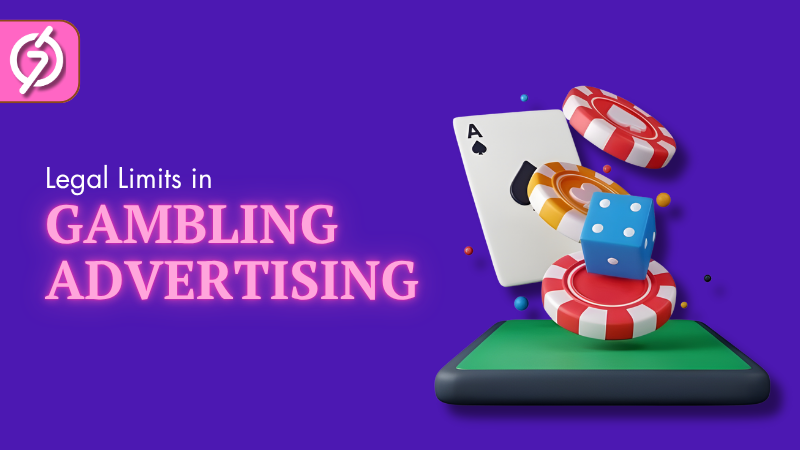The world of Gambling Advertising has grown into one of the most dynamic and heavily scrutinized sectors in digital marketing. With online casinos, betting platforms, and fantasy sports brands competing for attention, advertisers face a unique challenge—how to stand out while staying compliant with evolving regulations.
If you’ve ever tried to create an effective gambling ad campaign, you’ve probably realized that creativity alone isn’t enough. There’s a fine line between persuasive messaging and legal pitfalls, and that’s exactly where understanding the legal landscape becomes critical.
A Rapidly Expanding Yet Restrained Market
Recent market data reveals that online gambling revenue surpassed $90 billion globally in 2024, with digital advertising being a primary driver of growth. Yet, behind these impressive numbers lies a tangled web of rules, country-specific bans, and advertising restrictions.
Advertisers often see the potential for enormous ROI in this sector—but one misstep can lead to fines, ad account suspensions, or even complete bans. This makes Gambling Advertising both lucrative and legally complex.
The Compliance Dilemma
Here’s the problem most advertisers face: gambling laws are not uniform. What’s acceptable in one region could be illegal in another.
For example, while the UK Gambling Commission allows regulated gambling ads with responsible messaging, countries like India and Singapore impose strict bans on promoting online betting. The U.S., on the other hand, has a patchwork system—what works in New Jersey may be off-limits in Utah.
Marketers trying to launch cross-border online gambling advertising campaigns must constantly walk the tightrope between compliance and visibility. And this complexity doesn’t just slow campaigns—it affects creative strategy, targeting, and long-term brand safety.
Why Legal Understanding Matters for Advertisers
Think of gambling promotion like driving a fast car. It’s thrilling, but one wrong turn can lead to a crash.
Smart advertisers know that understanding regulations is not just a legal checkbox—it’s a strategic advantage. By learning where and how gambling ad campaigns are legally permitted, advertisers can invest budgets more efficiently and reduce risk.
For instance, many regions demand that gambling ads:
- Display age restrictions (18+ or 21+ depending on jurisdiction).
- Avoid depicting gambling as a financial solution.
- Include responsible gambling disclaimers and help links.
- Exclude minors and sensitive groups from targeting.
Following these standards doesn’t just ensure compliance—it builds trust. Players are more likely to engage with brands that promote fair play and transparency.
Global Legal Landscape of Gambling Advertising
United Kingdom
The UK remains one of the most transparent and regulated markets for gambling ads. The Advertising Standards Authority (ASA) and Gambling Commission require that all ads avoid misleading content and emphasize responsible gambling. Phrases like “bet now and get rich” are considered manipulative and can attract penalties.
United States
In the U.S., laws vary by state. Some states like New Jersey, Nevada, and Pennsylvania allow online gambling promotion, while others remain restrictive. Advertisers must check both federal and state-level laws before launching online gambling promotion campaigns.
European Union
EU countries have varying levels of openness, with markets like Spain and Italy enforcing partial bans on gambling advertising, especially during daytime TV and live sports events.
Asia-Pacific
In Asia, countries such as the Philippines and Australia allow regulated gambling operations, while others—like China and India—impose severe restrictions. Advertisers often use PPC and affiliate networks that specialize in compliant traffic sources.
Smarter Advertising Through Legal Awareness
Instead of viewing legal restrictions as barriers, advertisers can use them to sharpen their gambling advertising strategy. When brands understand what can and can’t be said, they can focus on creativity within those boundaries—developing campaigns that inform, engage, and stay compliant.
For example, data-driven platforms help advertisers identify safe geographic zones, compliant keywords, and approved ad formats. This helps avoid disapprovals and ensures steady campaign performance.
If you’re running PPC campaigns, always ensure your ad copies include terms like “play responsibly” or “18+ only,” and that your landing pages meet regulatory disclosure requirements.
For better control over placements and compliance, explore specialized ad networks for gambling advertising. These platforms often pre-vet publishers, offer targeting by jurisdiction, and allow advertisers to focus on performance without crossing legal lines.
Practical Learnings for Advertisers
1. Always Research Local Regulations
Before launching a gambling PPC or display campaign, verify if the target region allows gambling promotion. Use government websites or legal summaries to confirm the specifics.
2. Use Licensed and Compliant Platforms
Work only with ad networks or affiliate platforms that have a transparent compliance policy. This helps avoid accidental exposure in restricted territories.
3. Maintain Responsible Messaging
Ads that glamorize gambling or imply guaranteed winnings are major red flags. Instead, highlight entertainment value or skill-based play when applicable.
4. Segment Your Audience Wisely
Geo-targeting and age-based filters aren’t optional—they’re mandatory. Respecting these parameters keeps your campaign ethical and safe.
5. Keep Legal Disclaimers Visible
Simple lines like “Gamble responsibly. 18+ only” make a big difference in compliance and credibility.
Real-World Examples of Compliant Gambling Advertising
Example 1: A UK-based sports betting platform used a series of educational videos that promoted responsible gaming. Their ads didn’t push immediate deposits but emphasized setting limits and self-exclusion features. Result: improved ad engagement and positive brand sentiment.
Example 2: An online poker brand targeting Latin America created ad variations based on country-specific regulations. They excluded restricted regions, localized ad copy, and stayed fully compliant—while achieving a 32% higher ROI.
These gambling advertising examples show that creativity doesn’t have to suffer under compliance. In fact, clear messaging can build stronger connections with responsible players.
Why Responsible Advertising Builds Long-Term Brand Value
Short-term gains from aggressive or misleading ads can destroy a brand’s reputation overnight. In contrast, compliant and honest messaging positions your platform as trustworthy.
Players who feel respected are more likely to return and recommend your site. Regulators, too, view compliant brands more favorably when reviewing licenses or approvals.
Responsible online gambling advertising isn’t about limiting creativity—it’s about sustainability.
Common Pitfalls to Avoid in Gambling Ad Campaigns
- Using Unverified Affiliates: Third-party publishers might run non-compliant ads that put your brand at risk. Always monitor your affiliates.
- Ignoring Platform Policies: Google and Meta have specific rules for gambling ads. Breaching them can lead to permanent ad bans.
- Overpromising Results: Avoid implying guaranteed wins, instant wealth, or risk-free betting.
- Neglecting Ad Frequency: Oversaturation leads to negative perception and can trigger regulatory complaints.
Ready to Launch a Compliant Campaign?
Understanding the law is the first step. Executing campaigns that respect it is where real growth happens. If you’re ready to create an ad campaign that balances creativity, compliance, and conversions—start today with a reliable ad platform designed for responsible gambling promotion.
Let’s Be Real
At the end of the day, gambling advertising isn’t just about catchy banners or big bonuses. It’s about building trust in a market that demands responsibility.
If advertisers start treating compliance not as an obstacle but as a part of smart marketing, they’ll not only protect their campaigns—they’ll elevate their brand. The most successful campaigns aren’t just legal; they’re thoughtful, transparent, and built for long-term engagement.
When you understand the legal boundaries, you don’t just stay safe—you stay ahead.













